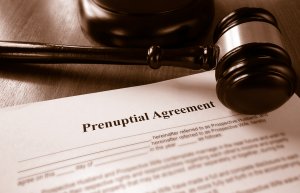Borrowing Money for Legal Fees in Divorce

Contact
Table of Contents
What if I can’t afford a lawyer for my divorce?
When navigating a divorce, it is widely understood that legal advice at the very outset is hugely important, to help those in such circumstances to understand what will need to be considered to them specifically, what their options are and the next steps.
Whilst an initial meeting is generally accessible at most budgets, for many, legal fees for representation throughout the process can often feel unaffordable in the context of their existing savings or income. In such circumstances, many people borrow money to meet their ongoing fees.
Family lawyers are not qualified to provide financial advice, so it is recommended to talk to a financial advisor before borrowing money.
Borrowing from family and friends
In the event that you are considering borrowing money from family members or friends to fund your divorce, it is important that you are first aware how such loans are treated by the Court.
Whilst the low-interest rates and lack of explicit time constraints will be an attractive feature of borrowing from friends and family, the treatment of such loans can often lead to disputes and therefore additional costs during a divorce or separation.
When considering debts incurred by either party to a divorce, you will likely hear lawyers refer to these as ‘hard’ or ‘soft’ loans or debts. Often, the Court will perceive loans from family or friends as soft loans. A soft loan is a loan whereby a failure to repay the loan (which may or may not be expected to be within a specified timeframe) is unlikely to be enforced or incur financial penalties. If the court deems a loan to be a soft loan, it will not consider it as a true liability in your case and it will not be taken into account in in the overall financial settlement.
Borrowing from the bank
It is not uncommon for individuals to fund their ongoing legal fees by taking out a bank loan or credit card, where they don’t have sufficient liquid capital or disposable income available. Such debt is generally considered to be a “hard debt” which must be paid back, given it comes with a contractually binding obligation to a third party and penalties are incurred if not paid back in accordance with the agreement. Hard debts are generally taken into account in the division of assets in a divorce.
Litigation loans
These loans can be used if there are funds available in the matrimonial pot but they are not accessible because, for example, they are tied up in property. Litigation loan providers will only lend if there is an obvious way for the loan to be repaid from the divorce settlement. This would be considered a hard debt in a divorce settlement. Because of the risky nature of these types of loans, they tend to have very high interest rates and are therefore not usually advisable unless other options have first been explored.
What if my spouse can afford to pay?
The general rule is that you are responsible for paying your own legal fees. However, if:
- your spouse can afford to pay both their fees and yours;
- you do not otherwise have the means to pay your own fees; and
- you are unable to obtain commercial funding or a litigation loan,
you may have a claim for your spouse to pay your legal fees.
If they do not agree to fund your legal fees, then you would make an application to the court for a Legal Services Payment Order, which is an order requiring one party to contribute towards the other party’s legal fees.
The difficulty with this application is that it incurs legal fees to start the financial proceedings and you would therefore need to find a way to fund the initial cost outlay. Everyone’s circumstances are different, and it is therefore important to obtain legal advice on how best to proceed based on your own circumstances.
Contact us
To speak with us about your situation or divorce matters generally, contact us by:
- Filling in our online enquiry form; or
- Calling us on 020 7485 8811
Share this article
Contact us today
Call us 020 7485 8811
Email us Send us an email and we’ll get back to you
Simone McGrath handles international child abduction cases and challenging care proceedings relating to non-accidental injuries.
I had ongoing problems with a leak for over two years which the council were not fixing. I contacted Osbornes solicitors and they re-assured me straight away that they could help. I was really pleased with the service they provided me and would recommend them again in a heart beat. My only regret is that I didn't call them sooner!
"Ben Posford has a great manner, clients really trust him and he gets the best out of them."
Thank you for your help and everything you did for me and I was happy with you.
I would like to thank everyone in my case for the excellent job!
Accreditations
Related InsightsVIEW ALL
- 27.8.2024
Pension Sharing Orders
Pension Sharing in Divorce With so many things to consider when dividing up your finances during a divorce or dissolution...
Read more - 4.12.2023
My spouse is going bankrupt. Will it affect...
Divorce and Bankruptcy In 2022, more than 1 in 10 businesses reported a moderate-to-severe risk of insolvency. More than one in five (22%) of...
Read more - 23.3.2023
Does Divorce Jurisdiction Matter?
Jurisdiction in divorce I am a family law practitioner with a large client following in England and in Gibraltar. I...
Read more - 22.3.2023
Breadwinner or homemaker in divorce. Does it matter?
Breadwinner vs Housewife Divorce Rights When it comes to deciding how wealth is split in a divorce, English courts do...
Read more - 22.3.2023
What is Parental Responsibility?
Understanding Parental Responsibility Parental responsibility is the legal term used to describe parents’ duties and responsibilities for their children. These...
Read more - 16.3.2023
Are trusts protected from divorce?
Can trusts protect an inheritance from your spouse? A trust is a separate legal entity. Neither spouse owns its assets....
Read more - 16.3.2023
Is a limited company protected from divorce?
Is my spouse entitled to half of my business? If you are involved in running a limited company, then it...
Read more - 16.3.2023
How is a pension split in a divorce?
Pensions and Divorce In a divorce, pensions are taken into account together with all other financial assets. Once all assets...
Read more - 16.3.2023
Who gets the house in a divorce?
How is a house divided in a UK divorce? For most people thinking about getting a divorce, one of the...
Read more - 7.12.2022
IR v OR: Judge Dismisses Pre-Nup in Landmark £184...
One of the reasons I am still passionate about family law, after 20 years in the field, is that it is...
Read more - 30.8.2022
What is a transfer of equity?
Transfer of equity in divorce Transfer of equity refers to the process of transferring part or all of a property...
Read more - 30.8.2022
Do You Have To Go To Court For...
Can you divorce without going to court? If your divorce is uncontested and there are no disputes over issues such...
Read more - 22.8.2022
Capital Gains Tax on Divorce
CGT Changes Could Reduce Stress for Divorcing Couples The government has proposed a number of changes to the capital gains...
Read more - 6.5.2022
My Spouse Has Cut Me Off During Divorce
Can my spouse cut me off financially? Unfortunately, it is far too common that when clients say it’s over,...
Read more - 6.5.2022
How the Court views loans from parents during...
A frequent issue in financial divorce cases is a loan from a spouse’s parent, often to pay legal fees,...
Read more - 5.5.2022
Mesher Orders Explained
What is a Mesher order? A Mesher Order allows the sale of the family home to be postponed in the...
Read more - 11.4.2022
Financial Dispute Resolution (FDR) for Divorce
What is FDR for Divorce? Traditionally, a divorce financial settlement is dealt with by mutual agreement between the parties or...
Read more - 31.3.2022
10 Interesting Facts About Same Sex Marriage and Divorce
Eight years after same-sex marriage was written into law, we’re looking at these major life events by the numbers. 1....
Read more - 28.2.2022
Decree Nisi
Update: With the introduction of no-fault divorce in April 2022, a Decree Nisi became a Conditional Order, and a decree absolute...
Read more - 18.1.2022
6 cases that shape a private children dispute
Family disputes involving children can be particularly emotive, which is why our expert children lawyers work tirelessly to understand how...
Read more - 9.12.2021
Are irreconcilable differences grounds for divorce?
If you have come across this article, it may have resulted from an online search to see if you and...
Read more - 16.11.2021
Uncovering hidden assets in your divorce
Hiding Assets During a Divorce As part of your divorce, you and your ex will have to agree on dividing...
Read more - 10.11.2021
Difference between Decree Nisi and Decree Absolute
Update: With the introduction of no-fault divorce in April 2022, a Decree Nisi became a Conditional Order, and a decree absolute...
Read more - 9.11.2021
Keeping social media out of divorce proceedings
We’ve recently seen the playing out on Twitter and Instagram of the high-profile separation of actor Ioan Gruffudd and...
Read more





























